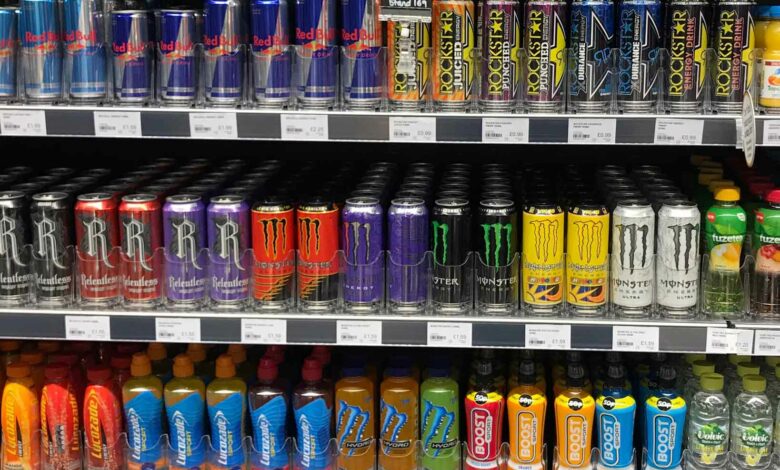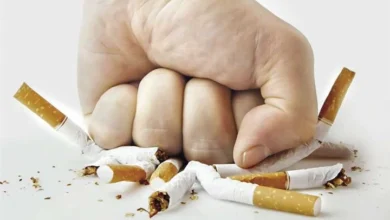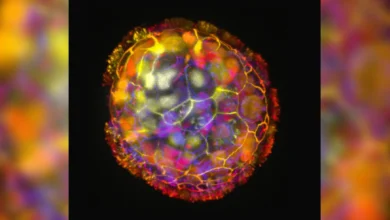What happens to your body when you drink one can of energy drinks?

Energy drinks contain large doses of caffeine along with substances such as gang, turin, guarana, and B vitamins. These drinks are more focused consumers, better physical functioning and less fatigue, and therefore receive acceptance among young people and adolescents, but at the same time many people are unaware of the damage to these drinks and the health problems they may cause to cancer and mental illness.
Many resort to energy drinks as they are rich in caffeine and sugar, and provide an immediate dose of energy to the brain and body.
But these drinks are widely debated over their effects on public health, with some cans containing 21 teaspoons of sugar and the same amount of caffeine found in three cups of coffee, which does not benefit the waist or health.
Caffeine is generally safe for consumption, but can be harmful when taken at larger doses.
University of York researchers warned that fans of energy drinks from young people are more likely to suffer from headaches, sleep problems and exclusion from school.
They also increase the odds of smoking by sipping caffeinated drinks.
WHO described energy drinks as a “public health risk.”
Data from the Personalize site revealed exactly what happens to the body, hour by hour, after finishing drinking an energy drinks can, even after 12 days.
A timetable for the energy drink was established using information from sources including the UK’s National Health Service (NHS), the US Food and Drug Administration (FDA) and the Red Bull energy drinks plant.
This can make you rethink your habit, and reassess whether high and low energy levels are worth it to achieve rapid activity.
First 10 minutes
This is when caffeine begins to enter the bloodstream, leading to a high heart rate and blood pressure.
15-45 minutes
This is when the caffeine level reaches peak, which makes you feel alert and better focused.
30-50 minutes
So far all the caffeine has been absorbed and the liver will often react by absorbing more sugar.
Clock
This is when you are likely to develop a “sugar breakdown,” when your blood sugar level and blood caffeine level decrease and you may feel tired.
5-6 hours
Spending approximately 5-6 hours after consumption will reduce caffeine content in the bloodstream by 50%.
12 hours
About 12 hours after completing an energy drink, caffeine is out of most people’s bloodstream, but varies depending on age and activity.
Between 12 and 24 hours
If you drink energy drinks regularly, between 12 and 24 hours is when you start feeling symptoms of withdrawal and may experience headaches, irritation and constipation.
7-12 days
Studies have shown that this is the time it takes for the body to become tolerant of the daily caffeine dose.
This means that if you maintain the level as it is, you are unlikely to feel any effects at this stage.





